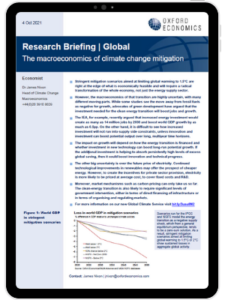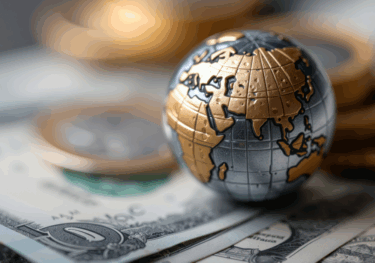The macroeconomics of climate change mitigation

Stringent mitigation scenarios aimed at limiting global warming to 1.5°C are right at the edge of what is economically feasible and will require a radical transformation of the whole economy, not just the energy supply sector.
However, the macroeconomics of that transition are highly uncertain, with many different moving parts. While some studies see the move away from fossil fuels as negative for growth, advocates of green development have argued that the investment needed for the clean energy transition will boost jobs and growth.
What you will learn:
- The impact on growth will depend on how the energy transition is financed and whether investment in new technology can boost long-run potential growth.
- The other big uncertainty is over the future price of electricity. Continued technological improvements in renewables may offer the prospect of cheaper energy.
- Moreover, market mechanisms such as carbon pricing can only take us so far. The clean-energy transition is also likely to require significant levels of government intervention.
Tags:
Related Services

Post
US Key Themes 2026: Exceptionalism amid fragmentation
US exceptionalism is alive and well, and that won't change in 2026.
Find Out More
Post
Global Key themes 2026: Bullish on US despite AI bubble fears
We anticipate another year of broadly steady and unexceptional global GDP growth, but with some more interesting stories running below the surface.
Find Out More